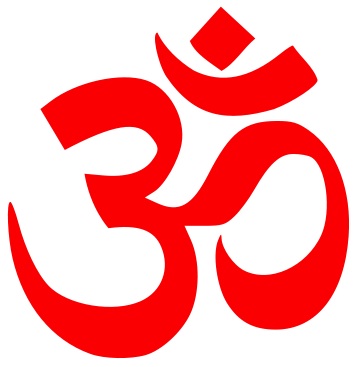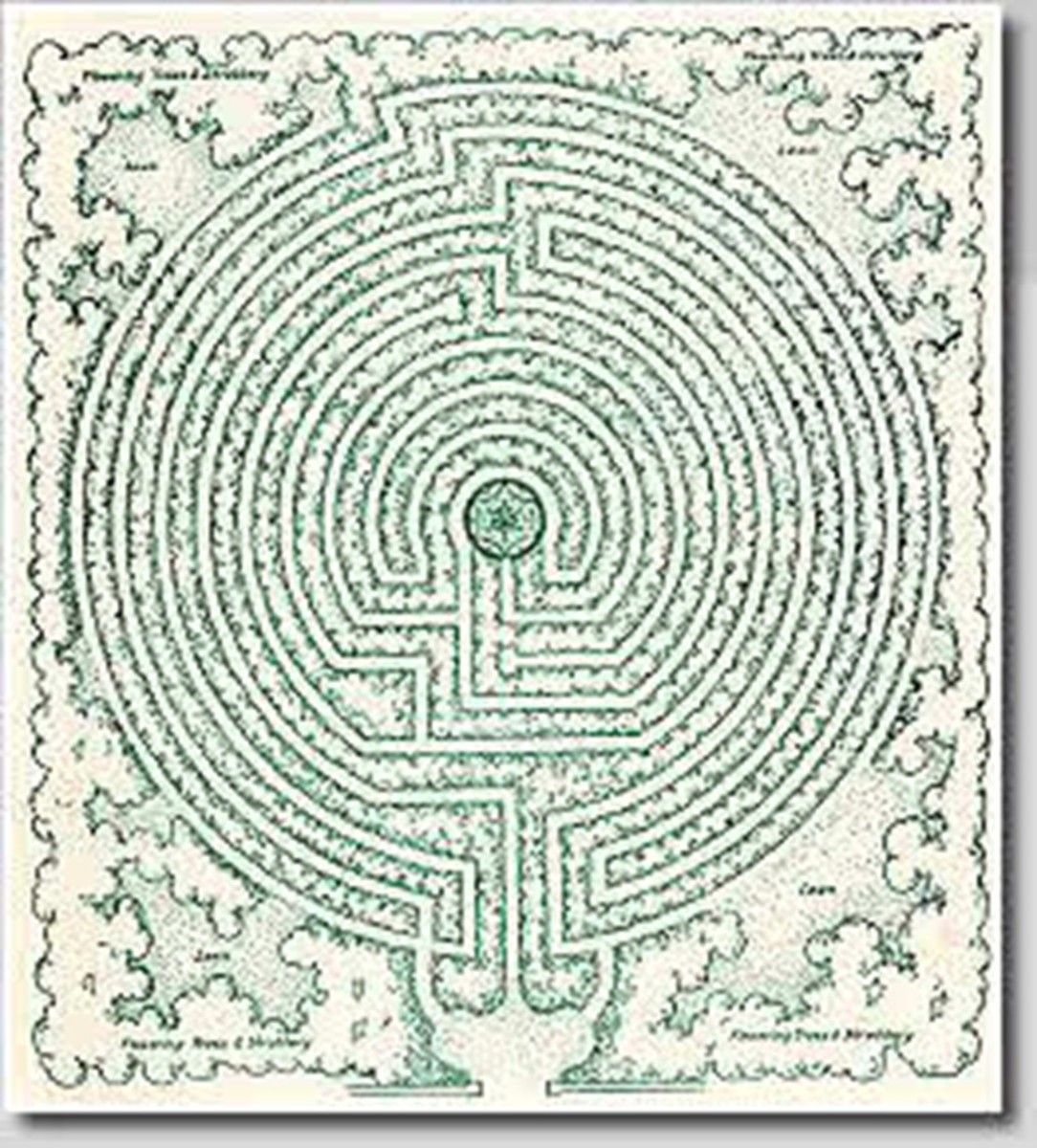Poem: What's In a Word? (Language and the World Wide Web)

What's In a Word
Go, rest, Dithyrambos, within thy Father's Womb:
Io, Evohe, Io, Io! Eä!
For you are the word, and you are not the word,
The Word Commands, "Be"
The Word that Names "Being"
The Unstruck Word, What may Be,
The ὡς οὐκ ἐστίν which is (not).
In the beginning, God said—
Or was it Re-Amun—
Or the Great Spirit—
Or Kangaroo—
Or Brahman—
Or One—
Be!
This was the mythos, the poet's word
Which shapes without bounding
Which sings without reducing
Which Is, Which embodies
Which sustains and continues
The everlasting song
Creation's anti-lullaby
Which stirs it from sleep
To life!
To poeisis, poeio, we sing!
To subcreation, we sing!
To true myth, we sing!
Sustaining, maintaining
We walk the song-lines
Reweave the refrain.
This was the logos,
Creation's true name
Sacred syllabary
Divine discourse
Defining all things
Naming all things
Unnamed? Lost.
Named? Established.
Write it down.
Make it real.
Just say it.
Thoth takes notes.
Odin carves his Name
In Yggdrasil's bark.
The Koran is made flesh.
Can we still hear
Anahada Nada?
Do we yet sing the Dithyramb?
The sound before the tree fell
The silence before the egg cracked
The harmonic harp-string
The upswung bell
Is Om.
We are rational, now;
Words measure all things.
Socratic dialog
Linnaean taxonomy
Rational alchemy
Sorts order from chaos
Casts out dreams
Calls myth lies.
Logic dictates
Definition illuminates,
Limits, ropes off,
Censors, gags—
Until code-words erupt
Rewrite reality,
Orwellian doubletalk
Turns the Word inside out.
Our words become keys to our words.
If a word falls in the world wide forest
And Google doesn't hear it
Does it make a sound?
Sound bites and acronyms
Tweets and texting
A tale told by a pundit
Full of sound and Siri
Signifying nothing.
Is the word dead
when it is said?
"It depends on what the meaning
of the word 'Is' is."
Isis?
She knows all the songs.
Notes on This Poem
This poem is about the nature of words, how we use and define them. It springs from thousands of years of debate over what words are, what they are for; over the role of poetry, writing, speech and sacred song; over logic and reason, inspiration and rhetoric.
The running theme of the poem is the tension between irrational and poetically inspired utterances versus rational and calculated speech. There is also a tension between the word as an act or process (being, naming, speaking, making, becoming) and the word as a thing (a concept, a song, a poem, a lie, a truth, a tool).
Since I am trained in classical studies, Greek and Roman literature, I employ a classical device: quotation, riffing on the words of old poets.
The Invocation
The poem begins with a quote from Euripides' Bacchai, translated (translation always loses words' meaning): "Go rest, my Dithyrambus, there within thy father's womb; by this name, O Bacchic god, I now proclaim thee to Thebes."
The Greek chorus here sings of the birth of Dionysos, patron of the arts, poetry, and inspired (prophetic) madness. They claim that Zeus slept with Dionysos' mother, then slew her by revealing his undisguised, true godly form. Zeus then yanked the unborn Dionysos from his ded mother's womb and sewed the fetus into his own thigh ("his father's womb"), thus entirely usurping the mother's role. Zeus birthed Dionysos and named him Dithyrambos.
To name is to make something exist. To name it is to define it. (Latin De + finis, a "limit, boundary," to establish meaning by rejection of ambiguity and alternate readings.) Yet dithyrambic verse is ecstatic, inspired, not rational. Dionysos inspires our irrational, dreaming, poetic side which defies definition.
I borrow the Bacchantes' ecstatic nonsense-word used to hail Dionysos: evohe! This word is purely poetic; it evokes an emotional response, yet it means precisely nothing.
I also borrow an entirely made-up word: Eä! This is a Tolkien reference. Tolkien, like me, was a languages scholar who longed to create living mythology akin to the dead myths he studied. Unlike me, he succeeded.
For Tolkien, the metaphor that Man is made in God's image is true in the following way: we have the power to imagine, to "subcreate" imaginary worlds that are real in our imaginations, whereas God's creations are real in reality. By executing our subcreative powers, we use (and appreciate) God's special gift to us.
Tolkien's linguistic view of mythology caused him to tackle fiction-writing in a rather unusual way. Unlike most writers, Tolkien first invented languages, etymologies for the peoples of his sub-created world. Using these invented languages, which resemble real-world languages in all their complexity and inner logic, he could name the characters and places of Middle-earth and imbue them with a sense of reality that most fantasy worlds lack. Even if we don't know it consciously, the names of Aragorn, Mordor, Rohan really mean something. Thus they seem more true, in the way that myths are true.
To further establish Middle-earth as a "real" subcreation, Tolkien wrote a creation myth for it in the Silmarillion (which remained unpublished until his death: see "unstruck sound" below). In this creation myth, Eru ("The One," obviously God) creates the universe by speaking its name, Eä, meaning: Be!
on Mythos and Logos

Four Kinds of Words
"For you are the word, and you are not the word."
Again, definition means setting limits that say, "this is, and that is not, what I am talking about." By naming one must exclude. In songs, we can almost avoid the limitations of definition: sound and music inspire emotions and feelings that go unnamed. In poetry, too, we can reanimate words with sound-play and ambiguity, expressing more than the words literally say. However, we can never say all that we mean. We can never completely explain what we mean by the word "word." To explain is to destroy its fullness of meaning.
Nevertheless, this poem explores four concepts of what words are: mythos, logos, Anahada Nada, and ὡς (οὐκ) ἐστίν. I will explain these terms below. But first, say them aloud and taste their music, before we explore what these sounds mean.
MU*-thos. *(roughly the oo-sound of "fuel").
LOH-gos.
ah-nah-hah-dah nah-dah.
Hohs* ook EH-stin. *(rhymes with "close")
Mythos, the Poet's Word
From Tolkien's Eä, I dance back to other cosmogonies springing from the idea of a Divine Word as the spark of creation. This concept is hardly unique to the Bible. Many creation myths express the idea that God first created the world by speaking its name, by naming its being and the beings in it.
Amun-Re speaks the Word for ancient Egyptians. Some Native American traditions ascribe the Word to a Great Spirit. For the Hindus, the creator-god who speaks the sacred Word is Brahman.
The Australian aborigines have a lovely riff on this mythological motif. Not just Kangaroo, but all their ancestral spirits sung their land into Being, walking along its "song-lines," ley lines across the landscape. They named each animal, plant, river and hill into existence. In the concept of Dreamtime, those ancient songs of creation are still vibrating on a spiritual plane, and they must be maintained by human recital in this plane. Australian aborigines are born into tribal song-traditions. Each person helps maintain the stability of the world by going Walkabout and retracing the gods' song-lines, re-singing the gods' songs, reconnecting with the ever-present Dreamtime of creation. The chaos and destruction in the modern world are caused by the loss of verses of the song, song-lines which people have ceased to sing.
So I sing of creation through Words, while acknowledging destruction through loss of words. While doing so, I use shorter and shorter lines, reducing down to the essence of "One" and "Be."
Then I return to my first theme: Mythos.
Mythos is an "utterance," a story, a metaphor which expresses certain truths, even if it is not literally true. Poetry is the act of poesis, creative speech. This section sings of creative speech— sings because song is more polyvalent than other arrangements of words, and better expresses words' living ambiguity, the duet of soul and form, thing and meaning which is vital for life. Mythos is poetry, is subcreation, our human faculty of speech which lets us name, know, and thereby affirm the reality of creation.
Before the advent of writing, poetic speech was an essential aid to memory. Poetry's meter and music allowed people to pass down traditions, knowledge, stories and oral history. Without poetry, all would be forgotten. Without a poet to recite your name in story and song when you were gone, you would cease to exist; or at least, no one would know you had existed. So too with anything: places, events, animals, lives. Poetry recorded reality and proved it was real.
Joseph Campbell on Logos

Logos, The Defining Word
When writing was invented, it appropriated the ancient power of poetry to preserve and establish what is and what was.
In the mythology of Egypt, where writing was invented early, the gods actually write. They even write letters to each other. Thoth the divine secretary "established" (or, better "affirmed") the substance and stability of the universe by writing down the supreme creator-god's utterances. Thoth kept histories and record which ensured that the past continued to live. In Egypt, stability was a perennial concern. Every year Egypt was flooded by the Nile, turning orderly fields and boundaries back into undifferentiated mud and water, primordial chaos. Only by record-keeping could Egyptians re-define boundaries when the waters receded. The Egyptians were preoccupied with stability, and writing was their foundation. The ultimate act of vengeance against a hated predecessor was to erase his name from records and monuments, wiping out his existence.
This was not only true in Egypt: most cultures with writing systems connect writing to creation and reality in some fashion. In Hindu traditions, the syllables of Sanskrit are seen as the seed-atoms of the universe: their infinite recombinations name and establish all things.
In Christianity, Jesus is the Word made flesh.
In Islam, the Koran is the Word incarnate in a book. (That's why you do not treat the Koran carelessly. For Muslims, that is literally abusing God.)
So, inexorably, we move towards the concept of the word as Logos, definition, making order (kosmos) out of chaos. And here, as a poet, I am reminded of the ancient Greek way of calling for silence: "Speak no inauspicious words."
Enter the master of logos, Socrates. He (or perhaps his biographer, Plato) did something for which I almost think Socrates deserved his cup of hemlock. Partway through Plato's Republic, Socrates performs a verbal magician's trick. He starts discussing mythoi, literally "utterances," fables, old wives' tales from which children learn concepts of justice, ethics, and reality. Partway through his discussion, Socrates redefines the word mythoi with pseudoi, "falsehoods," the opposite of logoi, "facts arrived at through speech, discussion, dialogue, reason and definition." The mythoi, tellingly, are spoken by mothers to sons; logoi are the province of men. Implicit is the idea that men have the greater intellectual faculties to define reality and discern truth.
Socrates initiates a two-thousand-year-long conversation that moves towards, "Just the facts, ma'am." (Except that in fact, Joe Friday never said that; his actual Dragnet catchphrase is, "All we want are the facts, ma'am," or "All we know are the facts, ma'am.")
In the last years of the 20th century, we find the mythographer Joseph Campbell in a war of words with a radio host, as he recounts in Thou Art That. Campbell tries to point out (as Socrates tried to suppress) that there is something midway between "truth" and "lie": metaphor.
Unstruck Sound: Anahada Nada
Anahada Nada, "unstruck sound," is a concept in Hindu religion. In their creation myth, the supreme god Brahman creates by naming the world into being. Divine seed-syllables name, define and differentiate the parts of the universe from undifferentiated, primordial chaos, nothingness.
A modern metaphor helps illustrate the ancient concept of unstruck sound. Visualize the moment when a strikes a beaker of supersaturated solution, and particles of (salt, sugar, matter) precipitate out.The unstruck sound is the potential sound, the quivering yet unseen vibration, in the instant just before the beaker is struck. In Hindu religion, speech is both a wave (energy) and a particle (matter). Sound can be spoken (mantra). It can be written down. It can be expressed in a visual abstract form (yantra, mandala). It can be embodied in an anthopomorphic representation of a god. All are true, all are the word. None are true.
The true Word is the unstruck sound, the vibration expressed as Om— the silence just before and after it.
(For, without the white space between letters, the silences between syllables, speech would be garbled, undifferentiated, intelligible. Silence is the most vital and universal component of human speech.)
From Speech to Text

The (Not) Being
So the power of logos began to define our world, our scientia ("knowledge"). Words filled our world maps with named places. No more terra incognita; no more "there be dragons here." The scientist Linnaeus established a naming system, taxonomy, to name all living beings: genus, species. Astronomers named the stars. Grammarians named parts of speech. Doctors named diseases. Logic sifted out facts from fiction. Fiction was false, superstition, frivolous. Poetry was reduced to a plaything, rather than reality's life preserver.
Words become arbiters of meaning rather than carriers of meaning.
This, too, started back in ancient Greece (among other places).
The pre-Socratic philosopher Parmenides speaks of ὅπως ἐστίν, "what is," opposing it with the phrase ὡς οὐκ ἐστίν, "what is not." He argues that it is impossible for something that is to not be, or vice versa. Therefore, one cannot rationally discuss anything which "is not": fiction, myth, poetry. It does not exist! In fact, non-existence is impossible! Furthermore, change is impossible, because that implies something is now that was not before. Worse, that means everything must really be exactly the same thing, because if A is not B, then we've expressed the concept of "is not," which...is not possible.
See the wordplay? See the logical contradictions being paraded in the name of logic? We have entered the twilight zone of rhetoric, where words can be twisted to mean anything... or nothing.
Enter code-words. In modern political rhetoric, politicians of all stripes have learned to choose certain words very deliberately to evoke and define an idea. Pro-choice. Pro-life. The 99%. Entitlements. War on Terror. The Patriot Act. They choose words that you would be a fool or evil to disagree with, so that discussion becomes impossible. Ambiguity is artificially suppressed. He who controls the narrative controls reality. Coded speech is more than propaganda, which persuades; it is an extreme form of deliberate definition, where the word become a tool for manipulation, not an expression of truth.
Meanwhile, the world wide web is a tapestry of words, navigated via search algorithms that hunt for "keywords" on webpages, in order to help us find what we seek. Search algorithms do not understand the "keywords" we are looking for; they are simply pattern-matching. Words become signposts, but since search algorithms are limited by programming and the literal, many words on the web are never found.
Despite these limitations, computers can now imitate human speech and mimic understanding. We talk back, befriending our dumb servants, grateful to have listeners that seem to "get" what we are saying. Sadly, text-to-speech machines speak to us more meaningfully, usefully, and comprehensibly than the sound bites and acronyms filling our airwaves. Is Siri the GPS that will help us escape our Tower of Babel, or is it leading us deeper into the murk?
Coda: "Is is", Isis
Do words make meaning die, or help it live?
I mourn the death of poetic utterance in this poem, hence I filed the poem under the category of "elegy," (the wrong label; it should have been '"free verse," but Hubpages lacks the right definition-pigeonhole). At the same time, this poem is a celebration of living, breathing speech.
Emily Dickinson wrote:
A word is dead
When it is said
Some say.
I say
It begins to live
That day.
Words define and destroy. Words evoke and create. They exist only at the moment of being spoken, or in our recollection and recording of them. They enact and embody creation. Or perhaps they are simply blank, meaningless noises whose meanings depend only on what we say they mean. Both.
As Bill Clinton infamously put it, in a verbal backflip worthy of Parmenides (while denying the inconvenient existence of the feminine): It depends on what the meaning of the word "is" is.
As a poet, I ignore Clinton's literal words and look for the irrational, the embedded metaphor. "Is is" resembles "Isis," the Greek name for the Egyptian goddess Aset. Isis' claim to fame is that she appropriated Amun-Re's creative power by persuading him to reveal to her his true, hidden, secret Name.
Through the unstruck sound of God's Name, Isis has the power to transform and create: she can birth all the words, all the worlds, all the songs.
Q. E. D.
I have explained the words of the poem. Yet now you know that the explanation, the definition, is not the true meaning of the poem. Read it again. Listen to the sound. Feel the soul behind the literal speech. Seek the Om.






